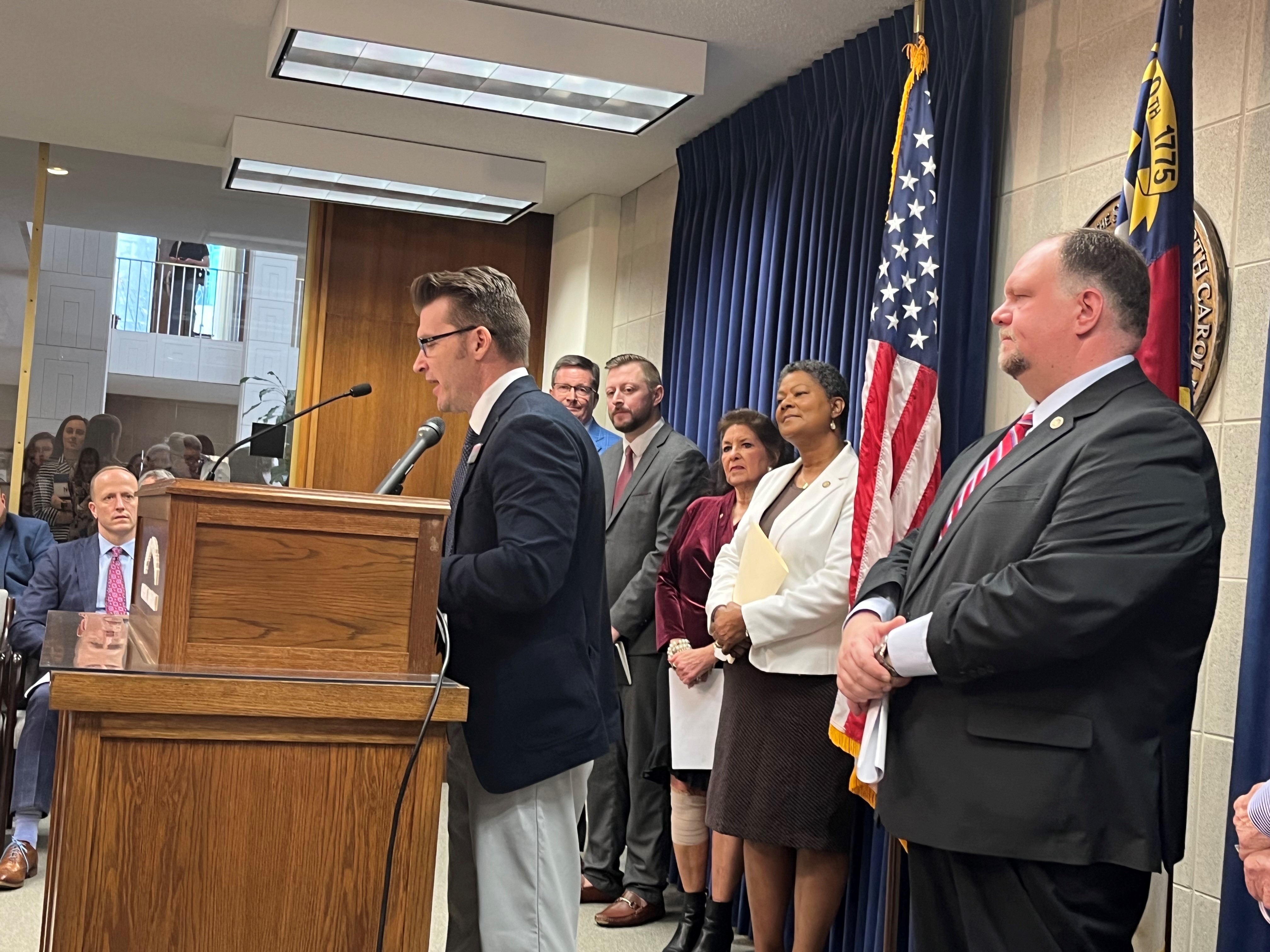AARP Hearing Center

RALEIGH -- When Frances Williams, a Raleigh native, sought healthcare for pain in her leg, her internist did not even touch her to assess the issue. Desperate for a more engaged caregiver, Williams took a suggestion from a nurse to visit Schquthia Peacock, a family nurse practitioner in Cary.
After seeing Peacock, she was convinced that this office was where she needed to be. “I won’t let anyone else see me,” Williams said. “I’m ecstatically happy to have her."
Peacock is not only an award-winning family nurse practitioner, but she also advocates for increased access to healthcare for patients in North Carolina. At her practice in Cary, she has numerous uninsured patients, many of whom travel from outside the town of Cary – sometimes even from outside the county to see her.
“You would be surprised at how few providers there are in some of the rural counties,” Peacock said.
One answer to the need for more providers would be passing the SAVE Act (HB 218, SB 175) bipartisan legislation which was reintroduced today in the North Carolina General Assembly. The SAVE Act would roll back outdated regulations and give Advanced Nurse Practitioners (ANP), like Peacock, full practice authority.
Currently, ANPs work under the supervision of a physician. An ANP who wants to establish an independent practice in North Carolina would have to pay a physician to oversee their practice. However, these expensive arrangements require little to no actual supervision and the supervising physician doesn’t even have to live in the state. Full practice authority would give ANPs the ability to provide care independently, without physician oversight.
Proponents of the bill feel that ANPs can fill rural demands for access to healthcare providers without compromising the quality of care.1 In North Carolina, ANPs make up an increasing percentage of rural providers. Also, studies have shown that there are potential cost savings since ANP reimbursement rates are lower than physicians.1 Twenty-five states in the US, the Veterans Affairs System, Indian Health Services, and the US Military already allow ANPs full practice authority.2
Opponents, like the NC Medical Society, have concerns that ANPs do not have sufficient training. The NC Medical Society supports “coordinated care, not fragmented independent practice.” However, nurse practitioners must meet stringent qualifications through national certification and need years of experience as a nurse before entering a nurse practitioner program.
At today's press conference to announce the Act, Sen. Ralph Hise explained the real challenges of attracting any providers to rural Western North Carolina as the reason why he has worked so hard on this solution.
With the only opposition coming from physicians who benefit from supervisory agreements, Senator Gail Adcock challenged physicians to provide any evidence of how quality has diminsihed in any state that has allowed full practice authority. Senator Joyce Krawiec noted that because there are no real quality issues, full practice has not been rolled back in any states that allow nurses to better serve patients and their communities.

Peacock had seven years of nursing practice before she finished her graduate degree. “I am not coming into practice saying that I am going to know everything without asking questions, and I expect that would be the same for a physician. You need to know when you want to rely on your colleagues for resources, but not that it has to be mandated, it should be what is considered a professional expectation. There is a place for my experience and education and my certification to serve a role for my patients.”
There are many reasons Peacock supports the SAVE Act, but when asked she points to Gates county which has only two healthcare providers for their population of over 10,000. She looks forward to a time when “patients do not have to travel across county lines to find a health care provider.” The SAVE Act would open doors for patients and practitioners alike since many ANPs are from rural areas and want to return to practice in their communities.
Tell your representatives that you support the SAVE Act -- letting nurses do more for their patients: http://action.aarp.org/supportthesaveact
Help us push forthe SAVE Act and improved
health care and access in North Carolina by signing up for important AARP Action Alerts.
Resources
1Kenan Institute. (2022, August). Expanding access to healthcare in North Carolina: House Bill 149, takeaways and summarization of Bill Sections. kenaninstitute.unc.edu. Retrieved February 18, 2023, from https://kenaninstitute.unc.edu/wp-content/uploads/2022/08/Expanding-Access-to-Healthcare-in-North-Carolina.pdf
2Turner, A. (n.d.). The SAVE Act. The SAVE Act | North Carolina Center for Nonprofits. Retrieved February 18, 2023, from https://www.ncnonprofits.org/blog/save-act































































